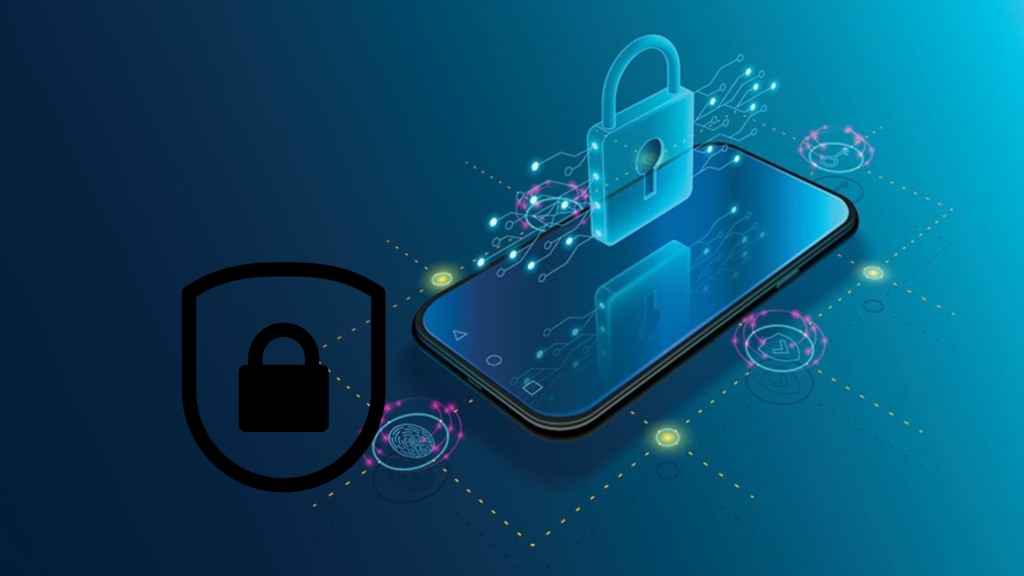
Are you ready to lock down your smartphone and tablet like a fortress?
In today’s digital world, mobile device security is more important than ever. With cyber threats lurking around every corner, it’s crucial to protect your personal information and sensitive data.
From malware attacks to unauthorized access, your mobile device is constantly at risk. But fear not, because in this article, we’ll show you how to safeguard your smartphone and tablet like a pro.
We’ll dive into the world of mobile security risks, teach you how to lock down your device, and explain the importance of keeping your software and apps updated.

Plus, we’ll discuss the dos and don’ts of installing apps and how to educate your family members about mobile security.
So get ready to take charge of your mobile device security and protect what matters most. Let’s get started!
Key Takeaways
- Regularly update your device’s operating system and apps to protect against security threats and improve performance.
- Install trusted apps from official app stores and be cautious when granting app permissions to protect personal information.
- Avoid using public Wi-Fi for sensitive activities and consider using a virtual private network (VPN) for secure internet traffic.
- Educate yourself and others about mobile security risks and spread awareness to ensure safe mobile practices.
Introduction
Mobile device security is crucial in today’s digital age. Every day, countless cyber threats wait to exploit our smartphones and tablets, making them vulnerable without proper defenses.
With the increasing use of mobile devices for personal and professional purposes, prioritizing the security of our smartphones and tablets is essential.
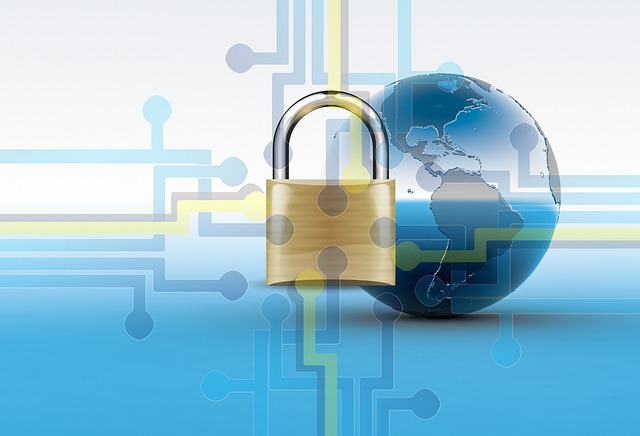
One key aspect of mobile device security is ensuring that we take the necessary measures to protect our devices from unauthorized access. This includes setting up strong passwords, enabling biometric authentication, and regularly updating our devices with the latest security patches.
Additionally, it is important to be cautious when granting app permissions and only download apps from trusted sources.
By implementing these security measures, we can safeguard our mobile devices from potential threats and protect our personal and sensitive information.
Understanding Mobile Security Risks
In this section, you’ll learn about common threats that can affect your mobile devices and the potential consequences of mobile security breaches. These threats include:
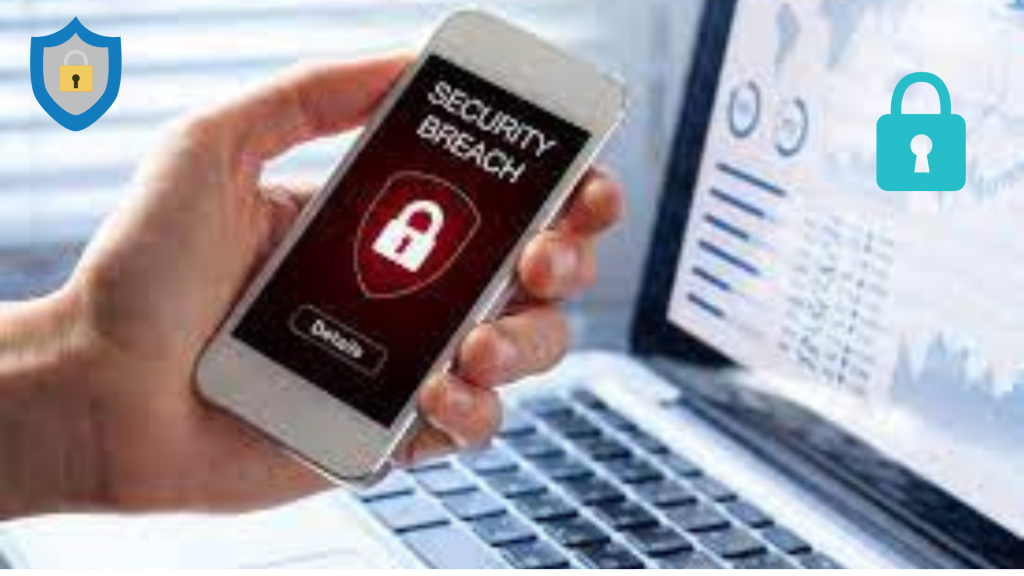
- Malware attacks: These are malicious software programs that can infect your device and cause various damages, such as stealing sensitive information or rendering your device unusable.
- Phishing attempts: These are fraudulent attempts to trick you into revealing personal information, such as passwords or credit card details, by posing as a legitimate entity.
- Data breaches: These occur when unauthorized individuals gain access to your personal information stored on your device or in online accounts. This can lead to identity theft, financial loss, and other serious consequences.
Understanding these risks is crucial to protect yourself and your mobile devices from potential harm.

Common Threats to Mobile Devices
Protect yourself from common threats to your smartphone and tablet by staying vigilant against malware, viruses, phishing, and social engineering attacks. Phone security is crucial in today’s digital age, as mobile devices have become an integral part of our lives.
One important step you can take is to install antivirus software specifically designed for Android or iPhone, depending on your device. These antivirus programs can help detect and remove any malicious software that may compromise your mobile security.
Additionally, practicing good mobile device management is essential. This includes regularly updating your device’s operating system and apps, avoiding downloading suspicious apps, and being cautious when clicking on links in emails or text messages.
By being proactive and taking these precautions, you can significantly reduce the risk of falling victim to common threats to your smartphone and tablet.

Potential Consequences of Mobile Security Breaches
Be mindful of the potential consequences of mobile security breaches, as they can leave you vulnerable to significant financial loss or personal information theft. It’s like a ticking time bomb waiting to explode.
When it comes to iPhone security, one of the main concerns is the possibility of losing sensitive data or having it stolen. Without proper protection, your encrypted phone can become a gateway for hackers to access your personal information. This includes banking details and passwords.
Moreover, a mobile security breach can result in unauthorized access to your email accounts, social media profiles, and even your work-related documents if you use your smartphone or tablet for professional purposes.
To avoid such risks, it is crucial to take steps to secure your phone. This includes using mobile device management (MDM) solutions and installing reliable mobile security apps.

Don’t wait until it’s too late. Protect your mobile devices now.
Locking Your Device
To ensure the security of your smartphone or tablet, it’s important to set strong screen locks. This will prevent unauthorized access to your device and protect your personal information.
Additionally, enabling auto-lock and timeout settings will ensure that your device automatically locks itself after a certain period of inactivity, providing an extra layer of security.
Setting Strong Screen Locks
When it comes to setting strong screen locks for your mobile device, there are a few key steps you should follow:

- Choose a strong screen lock option: This can include a PIN, password, pattern, or biometrics. By selecting a strong option, you’ll ensure maximum security for your device.
- Enable additional security features: Consider utilizing features like the secure folder on Android devices. This feature allows you to store sensitive data separately and adds an extra layer of security to your device.
- Keep your device’s software up to date: Regularly updating your device’s software is crucial for maintaining mobile phone security. These updates often include important security patches that help protect against potential threats.
- Utilize biometrics if available: If your device supports it, consider using biometrics like fingerprint or facial recognition. These features can further enhance the security of your device by adding an extra layer of authentication.

- Encrypt your phone: If you’re using an Android device, consider encrypting your phone. Encryption encodes your data, making it unreadable to anyone without the decryption key. This provides an additional level of protection for your personal information.
By following these steps and setting strong screen locks, you can effectively safeguard your smartphone or tablet from potential threats and unauthorized access. Remember, taking these precautions is crucial for protecting your personal information and ensuring the security of your device.
Auto-Lock and Timeout Settings
To protect your personal information and maintain optimal security, it is important to regularly adjust the auto-lock and timeout settings on your device. By doing so, you enhance the security of your Apple iPhones and ensure that unauthorized users cannot access your device.
Mobile management devices, such as iPads, also benefit from this feature. Setting an appropriate auto-lock time ensures that your device will lock itself after a period of inactivity, preventing any unauthorized access. This is crucial in protecting your personal data and preventing potential breaches.
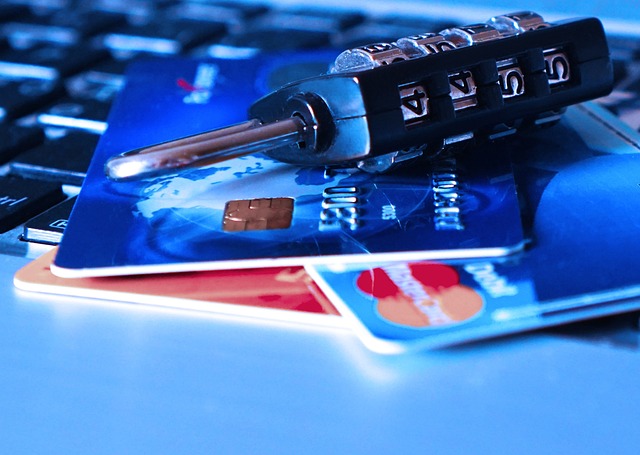
Additionally, it is important to note that iPhones provide encryption features, further safeguarding your information from hackers. Taking these simple steps will significantly enhance the security of your mobile device and protect your sensitive information.
Keeping Software and Apps Updated
Keeping your software and apps updated is crucial for the security and performance of your smartphone or tablet.
Software updates often include patches and fixes for known vulnerabilities, helping to protect your device from potential cyber threats.
Additionally, automatic app updates ensure that you always have the latest features and bug fixes, saving you time and effort in manually updating each app individually.

The Importance of Software Updates
Updating your smartphone or tablet software regularly is crucial because it helps protect your device from potential security threats and fixes any bugs that may affect its performance. By keeping your software up to date, you ensure that the latest security patches are installed, which can prevent hackers from exploiting vulnerabilities in older versions.
Additionally, software updates often come with improvements and new features that enhance your device’s performance and user experience. Mobile device manufacturers, such as Duo Mobile, understand the importance of software updates and release them regularly to address any security concerns.
It is also recommended to install the best antivirus for Android to further safeguard your device from malware and other threats.
As technology advances and the Internet of Things (IoT) becomes more prevalent, software updates become even more critical in maintaining the security of your mobile device.

Automatic App Updates
Make sure you never miss out on important app updates by enabling automatic updates on your device. This feature allows your smartphone or tablet to automatically download and install the latest versions of your apps, ensuring they have the most up-to-date security features.
By keeping your apps updated, you can protect your device from potential vulnerabilities and security threats.
For iPhone users, enabling automatic app updates is easy. Simply go to Settings, tap on your Apple ID, select iTunes & App Store, and toggle on the ‘Updates’ option.
Android users can also enable this feature by opening the Google Play Store, tapping on the menu icon, selecting Settings, and enabling the ‘Auto-update apps’ option.
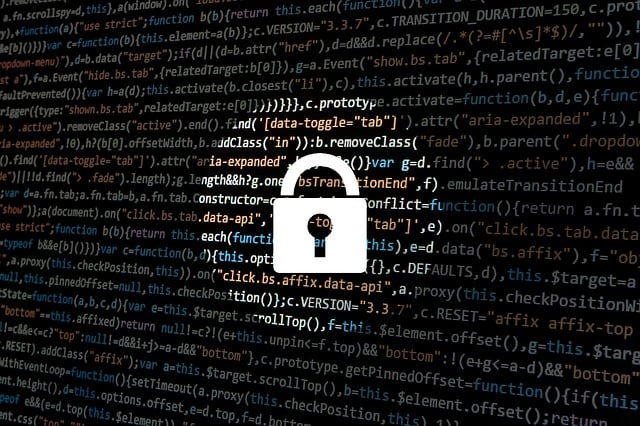
By enabling automatic app updates, you can enhance the security of your device and protect yourself from potential risks such as Android malware or iPhone secure folder breaches.
Don’t forget to also consider additional security measures, such as using a mobile antivirus or utilizing features like T-Mobile Passpoint for added security on your device.
Installing Trusted Apps Only
When it comes to installing apps on your smartphone or tablet, it’s crucial to only use official app stores. These stores, such as the Apple App Store or Google Play Store, have strict security measures in place to ensure that the apps available for download are safe and secure.
Additionally, always take the time to check the app permissions before installing any app. This will allow you to see what information the app is requesting access to and determine if it is necessary for the app’s functionality.
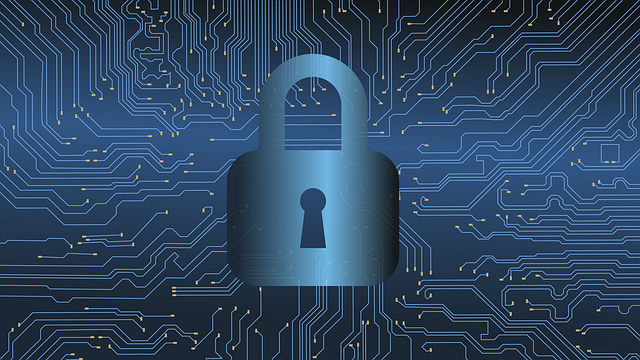
Using Official App Stores
To ensure the safety of your personal information and prevent the risk of malware, it is recommended to rely on official app stores like the Apple App Store or Google Play Store. Although you might be concerned about limited app options, these stores prioritize security and thoroughly vet the apps before making them available for download.
By using official app stores, you significantly reduce the chances of downloading malicious software onto your device. These stores also provide regular updates to patch any vulnerabilities and protect against emerging threats.
For enterprise mobile security, it is crucial to use official app stores in conjunction with Mobile Device Management (MDM) software. This combination ensures that devices are properly secured and prevents unauthorized access or data breaches.
By following these guidelines and trusting official app stores, you can confidently enjoy the benefits of mobile technology without compromising your security.

Checking App Permissions
To ensure the safety of your personal information, it is important to carefully check the permissions requested by apps before downloading them. Studies have shown that 42% of apps request access to unnecessary data and features on your device. When it comes to mobile device security, it is crucial to be vigilant.
Before downloading any app from official app stores like Okta Mobile, Bitdefender Mobile Security, Norton Mobile Security, McAfee Mobile Security, or Trend Micro Mobile Security, take a moment to review the permissions it requires. Pay attention to what data and features the app wants access to.
For example, if a flashlight app asks for permission to access your contacts or location, it might be a red flag. Granting only necessary permissions to apps can help protect your personal information and reduce the risk of data breaches or unauthorized access.
Stay proactive and safeguard your smartphone and tablet by being cautious about app permissions.
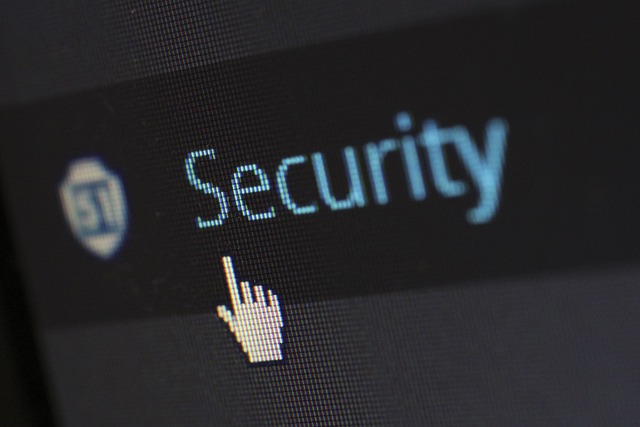
Protecting Personal Information
To protect your personal information, it’s important to avoid using public Wi-Fi for sensitive activities. Public Wi-Fi networks are often unsecured and can be easily accessed by hackers.
Additionally, you should be cautious when granting app permissions on your smartphone or tablet. Only give permissions that are necessary for the app to function properly and avoid granting access to sensitive information.
Avoiding Public Wi-Fi for Sensitive Activities
When it comes to sensitive activities, it’s crucial to avoid using public Wi-Fi networks on your smartphone or tablet. Connecting to these networks can easily expose your personal information to hackers. To protect yourself, there are a few steps you can take. First, consider using a virtual private network (VPN) which encrypts your internet traffic and ensures the security of your data. It’s also important to keep your device up to date with the latest software updates, as these often include important security patches. Installing antivirus software, such as Mobile Lookout for Android or Apple iPhone Security for iPhone users, can help detect and remove any malware that may be present on your device. By following these precautions, you can significantly enhance the security of your iPhone or Android device.
Managing App Permissions
Guard against granting excessive app access to your personal information, as it can compromise your privacy and put your sensitive data at risk.

When it comes to mobile device security, managing app permissions is crucial.
Always be cautious when granting access to your smartphone or tablet. Take the time to review and understand the permissions requested by each app.
Ask yourself if it is necessary for the app to access your contacts, location, or camera.
Additionally, consider installing an antivirus for your phone to further protect your device from potential threats.

Regularly update your apps and operating system to ensure you have the latest security patches.
By taking these precautions, you can safeguard your personal data and maintain the highest level of smartphone and tablet security.
Enabling Device Tracking and Remote Wipe
To protect your smartphone or tablet from being lost or stolen, it’s important to enable device tracking and remote wipe features. By setting up Find My Device or a similar feature, you can easily locate your device if it goes missing.
Additionally, remote wipe and data erasure allow you to delete all the data on your device remotely, ensuring that your personal information stays secure.

Setting Up Find My Device
Setting up Find My Device is a simple and effective way to ensure the security of your smartphone or tablet. With this feature, you can easily locate your lost or stolen device and even remotely wipe its data to protect your personal information. It’s a must-have for every device owner.
For Android users, there are also antivirus options like Norton Android that provide an extra layer of protection against malware and other threats.
Additionally, MDM security (Mobile Device Management) can be utilized to enforce security policies and remotely manage devices within an organization.
So, don’t forget to enable Find My Device or a similar feature on your device and consider installing a reliable antivirus for your Android phone. Stay protected and worry-free with these essential security measures.

Setting Up Find My
The Apple equivalent of Find My Device is called Find My. You can use it to locate your Apple device by signing in to iCloud.com/find or using the Find My app on another Apple device that you own. You can then see the approximate location of your device if Find My is set up on the device and the device is online.
Remote Wipe and Data Erasure
Protect your personal information by remotely wiping your device’s data. This ensures that your sensitive data remains secure even if your smartphone or tablet falls into the wrong hands.
Remote wipe and data erasure is a crucial feature to have on your mobile device to prevent unauthorized access. In case your device gets lost or stolen, you can remotely wipe all the data on it, including contacts, messages, and saved passwords.
This feature can be enabled through Find My Device or similar applications. It is also essential to have antivirus software installed on your device to protect against phone malware. Regularly scanning your device with a phone malware scanner can detect and remove any potential threats.

Additionally, consider using MDM (Mobile Device Management) cyber security solutions to enhance your device’s overall protection.
Utilizing Biometric Authentication
To enhance the security of your smartphone or tablet, you can enable biometric security features. These features utilize your unique physical characteristics, such as your fingerprint or facial recognition, to authenticate your identity and grant access to your device.
It’s important to ensure that the biometric data is stored securely to protect your privacy and prevent unauthorized access to your personal information.
Enabling Biometric Security Features
When it comes to securing your smartphone or tablet, why not take advantage of the convenience and peace of mind that biometric security features can provide? With the constant threat of malware and cyber attacks, it’s crucial to prioritize mobile security.

By enabling biometric security features on your device, such as fingerprint or facial recognition, you add an extra layer of protection. Gone are the days of remembering complicated passwords or worrying about someone guessing your PIN. Biometric authentication ensures that only you can access your device, making it nearly impossible for unauthorized users to breach your personal information.
So, whether you have an Android or iPhone, make sure to utilize the built-in biometric security options and consider installing reliable antivirus software to keep your smartphone secure.
Storing Biometric Data Securely
To securely store your biometric data, there are a few important steps you should take:
- Use a strong and reliable antivirus app to protect your mobile device. For iPad users, finding the best antivirus for iPad is crucial. Android phone users should also prioritize finding the best phone antivirus. Apple users should consider using an antivirus for iPhone.
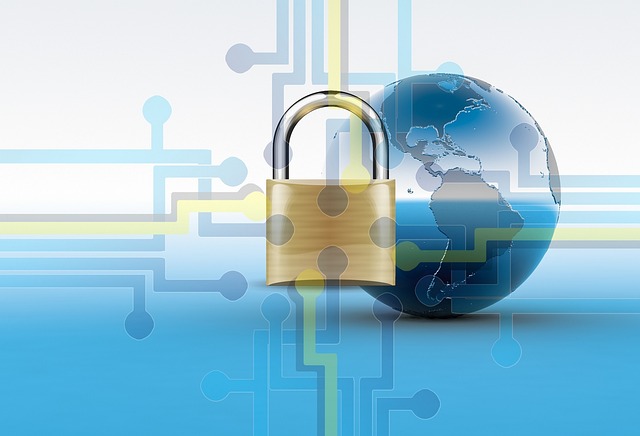
- These antivirus apps can help safeguard your device from potential threats and prevent unauthorized access to your biometric data.
Remember, taking proactive measures to store your biometric data securely is an important step in maintaining the security and privacy of your personal information.
Using Secure Wi-Fi and VPNs
When it comes to securing your smartphone and tablet, two key points to consider are connecting to trusted Wi-Fi networks and using virtual private networks (VPNs).
By connecting to trusted Wi-Fi networks, you can ensure that your device is not vulnerable to attacks from unsecured networks.

Additionally, using VPNs adds an extra layer of security by encrypting your internet connection and protecting your data from potential hackers.
Connecting to Trusted Wi-Fi Networks
To ensure the safety of your mobile device, it’s crucial that you connect only to trusted Wi-Fi networks. Connecting to trusted Wi-Fi networks is an essential step in mobile device security. When you connect your smartphone or tablet to a trusted network, you reduce the risk of unauthorized access to your sensitive information.
Trusted networks are usually secure and have measures in place to protect your data. They also offer a more stable and reliable connection compared to public Wi-Fi hotspots.
By safeguarding your device through trusted Wi-Fi networks, you can browse the internet, access your online accounts, and download apps with peace of mind. Remember, always prioritize your mobile device security by connecting to trusted networks.

Using Virtual Private Networks (VPNs)
Now that you know how to connect to trusted Wi-Fi networks, let’s talk about another important aspect of mobile device security: using virtual private networks (VPNs).
Your smartphone and tablet contain a wealth of personal information, and connecting to public Wi-Fi networks can put that information at risk. That’s where VPNs come in.
By encrypting your internet traffic and routing it through a remote server, VPNs provide an additional layer of security for your mobile devices. They protect your data from hackers and ensure your online activities remain private.
There are many VPN providers available, each offering different features and levels of security. So, take the time to research and choose a reliable VPN provider that suits your needs and provides the best protection for your mobile devices.

Protecting Against Phishing and Scams
When it comes to protecting yourself against phishing and scams, it’s important to be able to recognize suspicious messages and emails. By being alert to the signs of phishing, such as spelling errors, unusual requests, and unfamiliar senders, you can avoid falling victim to scams.
Additionally, remember to report phishing attempts to the appropriate authorities so that action can be taken to prevent others from being targeted.
Recognizing Suspicious Messages and Emails
Beware of bogus messages and emails that may compromise your mobile device’s security. It is crucial to be able to recognize suspicious messages and emails to protect your smartphone or tablet.
One way to stay safe is to avoid clicking on any suspicious links or downloading attachments from unknown sources. Additionally, make sure to never provide personal information or login credentials in response to an email, especially if it seems suspicious.

To further enhance your mobile device’s security, consider using the best antivirus for iPhone, such as Norton for iPhone, or McAfee for T-Mobile. For Android devices, you can install Duo Mobile Android or an anti-malware software to protect against potential threats.
Stay vigilant and take proactive steps to safeguard your mobile device from any security risks.
Reporting Phishing Attempts
To effectively combat phishing attempts, it is essential to promptly report any suspicious messages or emails. By reporting these phishing attempts, you not only protect yourself but also help authorities and platforms take action against the perpetrators.
If you receive a suspicious message or email, don’t ignore it. Instead, forward it to the appropriate authorities or platform. Many antivirus software options, such as AVG Antivirus for Android, Avast Mobile Security, and Bitdefender Android, have features that allow you to report phishing attempts directly from your mobile device.

Additionally, if you’re using an iPhone, you can report phishing attempts to Apple through their support channels.
Taking the time to report these phishing attempts can contribute to a safer online environment for everyone. Don’t hesitate, report suspicious messages and emails promptly. Stay vigilant and protect your mobile device.
Educating Family Members about Mobile Security
To promote mobile security awareness among your family members, it’s important to educate them about the potential risks and threats associated with using smartphones and tablets.
Teach your children safe mobile practices such as using strong and unique passwords, not clicking on suspicious links or downloading unknown apps, and being cautious while sharing personal information online.

By fostering a culture of mobile security within your family, you can help protect your loved ones from falling victim to scams or cyberattacks.
Promoting Mobile Security Awareness
Make sure you’re spreading the word about mobile security to keep your smartphone and tablet safe! It’s crucial to educate yourself and others on the importance of mobile security.
One way to promote mobile security awareness is by recommending reliable mobile security apps such as T Mobile Security, Duo Mobile Download, Avast for Android, Norton Antivirus for iPhone, and McAfee Phone. These apps can protect your device from malware, viruses, and other threats.
Encourage your friends and family to download and use these apps to safeguard their smartphones and tablets. Additionally, emphasize the significance of regularly updating their devices’ operating systems and apps. Remind them to be cautious when downloading apps from unknown sources and to avoid clicking on suspicious links.
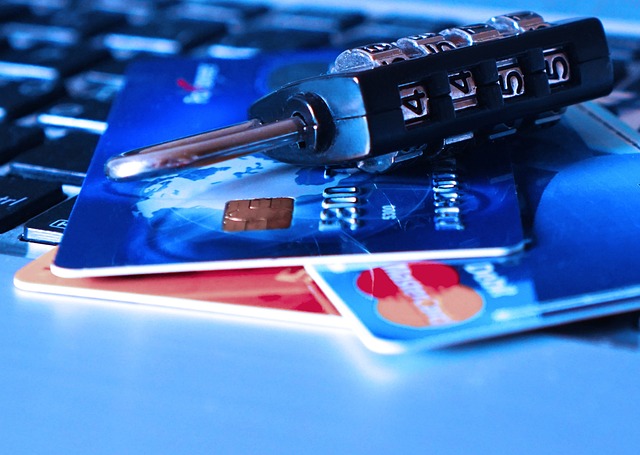
By spreading awareness and practicing safe mobile habits, you can help prevent potential security breaches and keep everyone’s devices secure.
Teaching Safe Mobile Practices to Children
To ensure your little ones are safe while using their gadgets, it’s important to teach them safe mobile practices. This can be done by:
- Teaching them the importance of being cautious online and avoiding suspicious links or downloads.
- Setting clear guidelines and boundaries for device usage.
- Explaining the potential risks of sharing personal information or interacting with strangers online.
- Encouraging them to use strong and unique passwords for their devices and apps.
- Showing them how to enable security features like biometric authentication or two-factor authentication.
- Teaching them to regularly update their devices and apps to ensure they have the latest security patches.
In addition to these practices, it’s also crucial to educate children about the dangers of public Wi-Fi networks and the importance of using a virtual private network (VPN) for secure internet browsing.
By teaching safe mobile practices to children, you can help protect them from online threats and promote their digital well-being.

Backup and Recovery
Regularly backing up your device data is crucial to prevent the loss of important information. By doing so, you can easily recover your data in case of any issues or accidents.
Understanding the recovery options available to you is essential. This knowledge allows you to quickly and effectively restore your device if needed.
Regularly Backing Up Device Data
Ensure that you consistently back up your device data to guarantee its safety and prevent any potential loss or damage. Mobile device security is crucial in safeguarding your smartphone and tablet.
By regularly backing up your device data, you are taking proactive measures to protect your valuable information. Whether it’s important documents, cherished photos, or vital contacts, backing up your data ensures that you can easily restore it in case of accidental deletion, device failure, or theft.

There are various methods to back up your device data, such as using cloud storage services or connecting to a computer and transferring files. Whichever method you choose, make it a habit to regularly back up your data to ensure its security.
Don’t wait for a disaster to strike before realizing the importance of backing up your device data. Take action now and protect your valuable information.
Understanding Recovery Options
Understanding recovery options is essential for ensuring the security of your mobile device and the accessibility of your data. One important step is regularly backing up your device data. However, even with backups, it’s crucial to know the recovery options available to you. In the event of a malware attack, using a reliable malware scanner for your iPhone or a trusted antivirus like Total AV for Android smartphones can help detect and remove any malicious software. Additionally, considering Norton Antivirus for Android or Norton iPhone can provide an extra layer of protection against potential threats. By understanding these recovery options, you can ensure that your mobile device remains secure and your data is always within reach.
Mobile Security in the Workplace
In the workplace, it’s important to have policies in place regarding Bring Your Own Device (BYOD). These policies outline the rules and guidelines for employees who use their personal devices for work purposes.
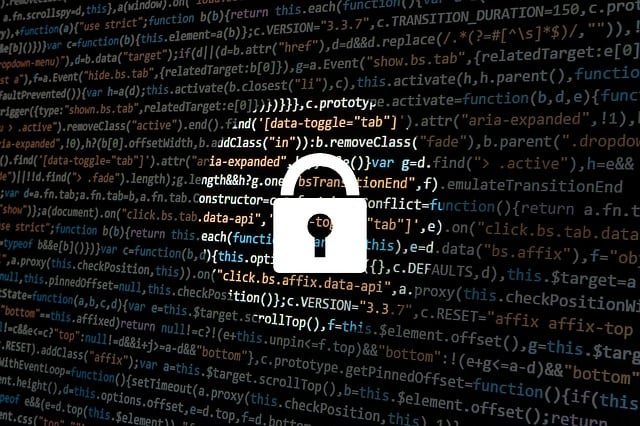
Additionally, employee training and awareness programs are crucial. These programs ensure that all staff members are knowledgeable about mobile security best practices and aware of potential risks and threats.
BYOD (Bring Your Own Device) Policies
Implementing BYOD (bring your own device) policies allows organizations to effectively manage the security of employees’ personal devices while maintaining a professional and secure work environment.
To ensure the highest level of security, it is crucial to choose the most secure phone for your employees. One option is the McAfee Android, which offers advanced security features such as device encryption, secure browsing, and app scanning. Another option is the McAfee iPhone, which provides robust protection against malware and phishing attacks.
With these devices, organizations can have peace of mind knowing that their employees’ personal devices are safeguarded against potential threats.
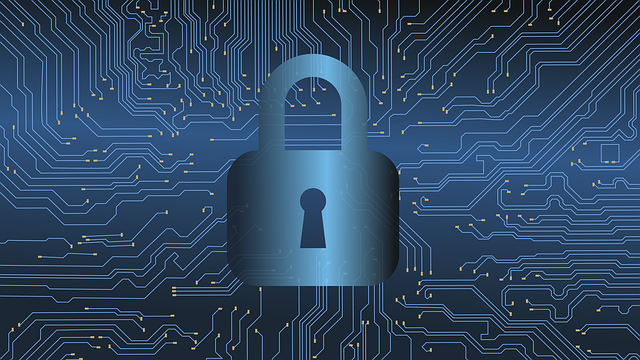
Additionally, BYOD policies enable organizations to implement security measures such as remote wiping, enforcing strong password policies, and regular device updates, further enhancing the overall security of the workplace.
Employee Training and Awareness Programs
Did you know that 90% of data breaches are caused by human error? It is crucial for organizations to prioritize employee training and awareness programs to mitigate the risk of these incidents.
By implementing effective training programs, employees can learn about the potential security risks associated with using smartphones and tablets in the workplace and how to prevent them. These programs should cover topics such as identifying phishing attempts, creating strong passwords, and recognizing suspicious emails or links.
Additionally, employees should be educated on the importance of keeping their devices up to date with the latest security patches and regularly backing up their data. By providing comprehensive training and raising awareness, organizations can empower their employees to play an active role in safeguarding their mobile devices and protecting sensitive company information.

Recap
To recap, let’s highlight the key takeaways for ensuring the utmost protection of your smartphone and tablet.
- Always keep your mobile devices up to date with the latest software and security patches. This will help protect against any known vulnerabilities.
- Enable strong passcodes or biometric authentication to secure access to your device.
- Be cautious when downloading apps and only install from trusted sources, as malicious apps can compromise your device’s security.
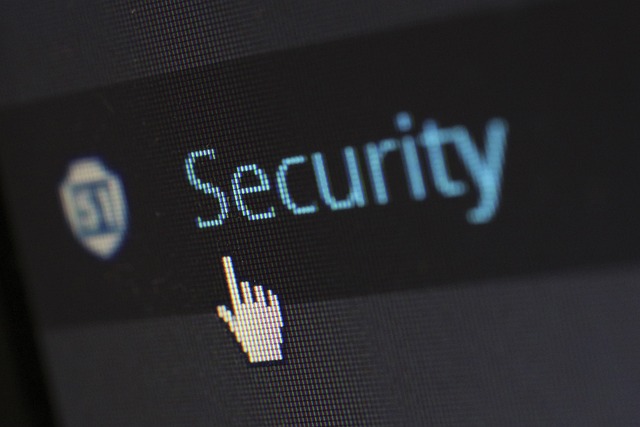
- Regularly back up your data to prevent loss in case of theft or damage.
- Be aware of your surroundings and avoid connecting to unsecured Wi-Fi networks, as they can be used to intercept your data.
By following these proactive mobile security measures, you can greatly reduce the risk of unauthorized access to your smartphone and tablet.
Frequently Asked Questions
How can I secure my mobile device if it gets lost or stolen?
Losing your mobile device or having it stolen can be a nightmare, but there are ways to secure it. Use features like remote tracking, locking, and erasing to protect your personal information and prevent unauthorized access.

What are some common signs that my smartphone or tablet may have been compromised?
Some common signs that your smartphone or tablet may have been compromised include unusual battery drain, slow performance, unexpected data usage, unfamiliar apps or messages, and unexplained changes in settings or permissions.
Are there any specific security measures I should take when using public Wi-Fi networks?
When using public Wi-Fi networks, be sure to take specific security measures. Avoid accessing sensitive information, use a virtual private network (VPN) for secure browsing, and regularly update your device’s software and apps.
What steps can I take to protect my mobile device from malware and viruses?
To protect your mobile device from malware and viruses, ensure you have a reliable antivirus app installed and regularly update it. Avoid downloading apps from unknown sources and be cautious when clicking on links or opening attachments.
How often should I change my device’s passcode or password for optimal security?
For optimal security, it is recommended to change your device’s passcode or password every nanosecond, just to be safe. This may sound extreme, but it ensures that your mobile device remains protected from any potential security breaches.

Conclusion
In conclusion, securing your smartphone and tablet is crucial to protect your personal information. By implementing the steps outlined in this article, you can mitigate the mobile security risks.
Locking your device and updating software regularly are simple but effective ways to safeguard your data.
Additionally, only installing trusted apps and educating family members about mobile security further fortify your device.
Remember, backup and recovery options are vital in case of any mishaps.

So, stay savvy and secure your mobile devices to surf the digital world safely.
You might also like to read on these cybersecurity articles on Get Hitch
Securing Your Home Network: Essential Steps for a Safe Connected Environment
Creating Strong Passwords: Best Practices for Secure Account Protection








